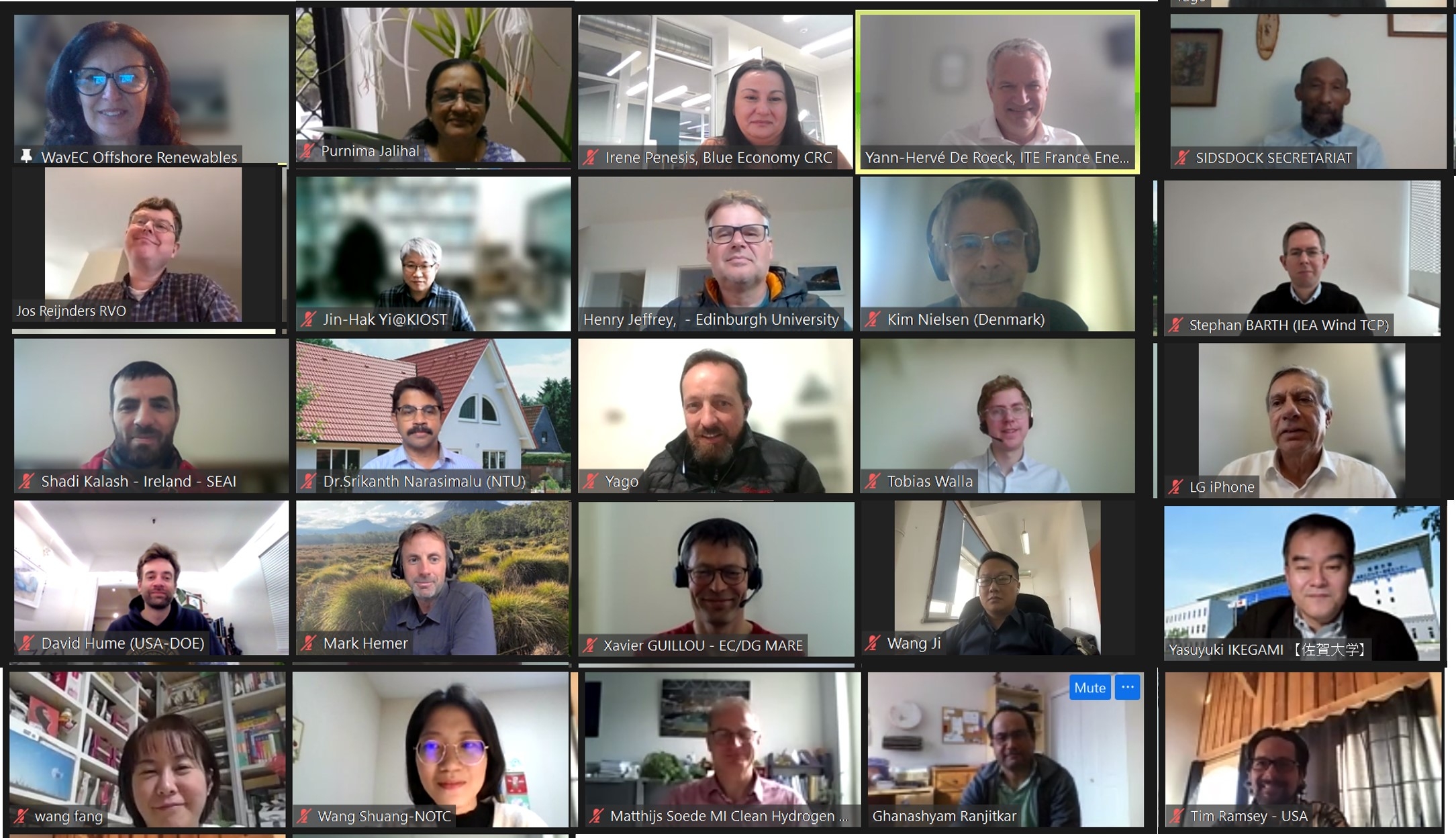
The 44th IEA-OES Executive Committee Meeting was held on 10-11 March 2022, chaired by Yann-Hervé De Roeck from France, with the participation of Australia, Canada, China, Denmark, India, Ireland, Japan, Republic of Korea, Netherlands, Portugal, Singapore, Sweden, UK, USA and the European Commission.
In this meeting, SIDS-DOCK was welcomed as an Observer Member to IEA-OES. SIDS DOCK represents 32 small islands and low-lying developing states across the globe. It is designed as a “DOCKing station” connecting the energy sector in SIDS (small island developing states) with the global markets for finance and sustainable energy technologies. The participation of SIDS DOCK in the IEA-OES will aim to exchange knowledge while promoting cooperation with developing countries.
The Meeting reviewed the progress made in the OES work programme. There was also an exchange of views on the Post-COVID era and its impact on the ocean energy sector, with a final message of strengthening international cooperation. The Chairman of the Wind TCP was invited to give an overview of their collaborative activities on the wind sector and the ExCo agreed to develop joint efforts on sharing knowledge between these two IEA Technology Collaboration Programmes. Finally, a discussion on Marine Spatial Planning brought attention to the complementarity between ocean energy and other uses, through co-existence with floating wind or floating solar PV, joined infrastructures and concepts for multi-platform. The meeting ended with the presentation of the study on the energy requirements of offshore aquaculture as a market for ocean energy, a report that was prepared by Pacific Northwest National Laboratory (PNNL) and the Australian Blue Economy CRC, planned to be published in April by the OES.


 The 44th IEA-OES Executive Committee Meeting was held on 10-11 March 2022, chaired by Yann-Hervé De Roeck from France, with the participation of Australia, Canada, China, Denmark, India, Ireland, Japan, Republic of Korea, Netherlands, Portugal, Singapore, Sweden, UK, USA and the European Commission.
The 44th IEA-OES Executive Committee Meeting was held on 10-11 March 2022, chaired by Yann-Hervé De Roeck from France, with the participation of Australia, Canada, China, Denmark, India, Ireland, Japan, Republic of Korea, Netherlands, Portugal, Singapore, Sweden, UK, USA and the European Commission.